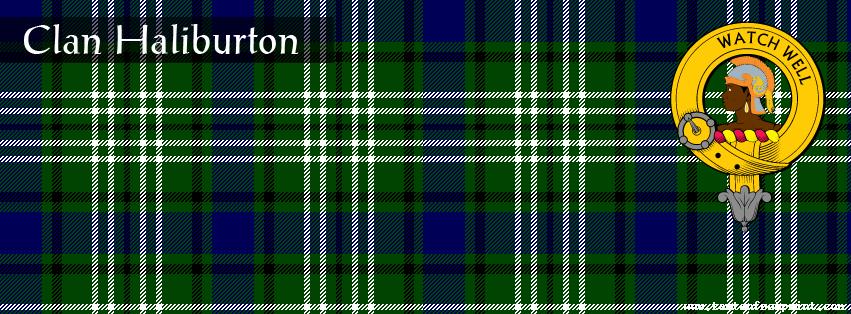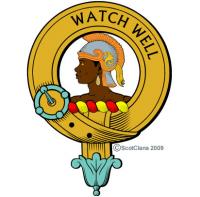
Clan Haliburton
Haliburton History
The name comes from the lands of Haliburton in Berwickshire. The lands there were originally called Burghton or Burton, but with the creation of a church there the place was renamed Holy Burton, or Haly Burton.
The first record of a Haliburton, is of Walter de Halyburton. It is a confirmation of a donation in 1176 to the Abbey of Kelso from his church of Halyburton.
Sir Henry de Haliburtoune witnessed a grant of lands in Dunypais (1200), and also appears as a witness in a charter by Matilda, countess of Angus (1242-43).
Another Sir Henry de Haliburtoune, along with many other Scottish nobility, rendered homage to England's Edward I in 1296 with the signing of the Ragman Rolls.
In 1346, Sir Walter Halyburton, Sir Henry's grandson, was captured after the heavy Scottish defeat to the English at the Battle of Durham. He was eventually ransomed, along with David II, in 1357 after eleven years in England.
In 1300 he witnessed a charter by Adam de Baddeby, and in 1309 was a witness in the enquiry concerning the Templars.
Sir Walter de Haliburton was one of the hostages for the James I on the 28th of March 1424, and did not return until the 16th of July 1425.
The Halyburtons of Pitcur were an old family in Angus and Perth, and another old family were the Halyburtons of Foderance in Angus.
A Pitcur Halyburton, James, was a descendent of the original family. He was the Provost of Dundee from 1550 until 1583. He was a staunch supporter of the Reformation, and fought at the Battle of Langside or the side of the Regent James Stewart, 1st Earl of Moray against Queen Mary, the Regent's half sister, in 1568. He died aged seventy in 1588







